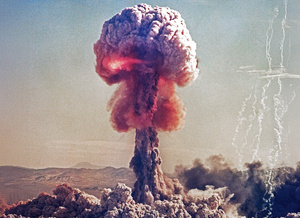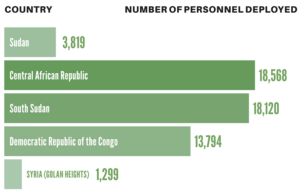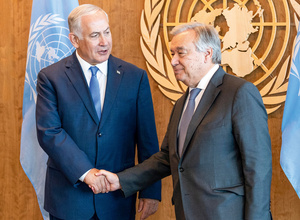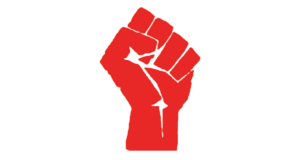
Fork in the road
In March, a UN conference sought to make progress towards outlawing nuclear weapons for good. But how can it make a difference while the world’s nuclear powers ignore it? Xander Elliards reports from New York.

United Nations - The Facts
Components, budget, and the peacekeepers of the United Nations.

Global leadership vetoed
The modern failures of the United Nations are not an aberration – but a product of its imperial roots, argues Conrad Landin. So how can we create a functioning system for global co-operation?

Memories in the walls
Jaclynn Ashly explores how the haunting legacy of Britain’s internment camps has shaped Kenya, and why it’s important to keep the fading memories alive.

A case of conscience
A growing movement of Christian feminists are making their voice heard as they oppose threats to tighten the country’s abortion laws. Alice McCool reports from inside their fight.
.jpg)
Above the law
Successive governments have failed to tackle police brutality, corruption and unlawful detention in Nigeria. Promise Eze hears from those who’ve experienced the sharp end of the country’s legal system.

The metals pie
Ramped-up demand for critical raw materials will cost the earth rather than save the world, concludes Vanessa Baird. And how much do we really need?

Smarter moves
There are better ways than digging ourselves deeper into a mining hole.
.jpg)
Congo’s cobalt curse
Corruption, pollution and child labour have long blighted the DRC’s cobalt industry. But is there any way of turning the country’s critical mineral wealth into a blessing rather than a burden? Cat Rainsford investigates.
.jpg)
White flamingos and lithium frenzy
Oasis of life – or zone of sacrifice? The fate of Chile’s culturally and environmentally rich salt flats may be decided by a lithium rush to double output. Vanessa Baird reports from the Salar de Atacama.
.jpg)
Farming yes! Mining no!
The government of Dina Boluarte is determined to inflict a hated copper mining project on the people of the Peru’s Tambo Valley. Why, asks Vanessa Baird?

Critical minerals rush - The Facts
Rising demand; Where from?; Big dirty business; Real needs?

What, how many and why?
What does the term ‘critical’ mean, and where will we find these minerals?
.jpg)
Can mining save the world?
They are touted as our way out of climate chaos and essential for making the things we use, from mobile phones to electric vehicles. Vanessa Baird sets out to investigate critical minerals – and the rush to get them.

Revolutionary aid
Once at the forefront of the 2018 revolution, Sudan’s social movements are now providing vital humanitarian aid throughout a devastating civil war. How have they kept their pro-democracy politics alive and adapted to a changing landscape? Eiad Husham reports.

Svalbard’s green gamble
As Norway’s isolated islands leave coal mining behind, Huw Paige asks if it is realistic for them to become a green exemplar for the Arctic.

The war isn’t over
After the celebrated fall of the Assad regime, questions remain over Syria’s future. As Turkey increases violence in the country’s Kurdish-majority north, Matt Broomfield reports on people’s hopes and fears.

A bloody oath, mate
Dario Vacirca examines efforts to prosecute ongoing crimes against Australia’s First Nations.





